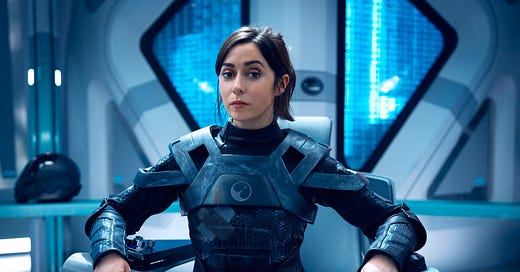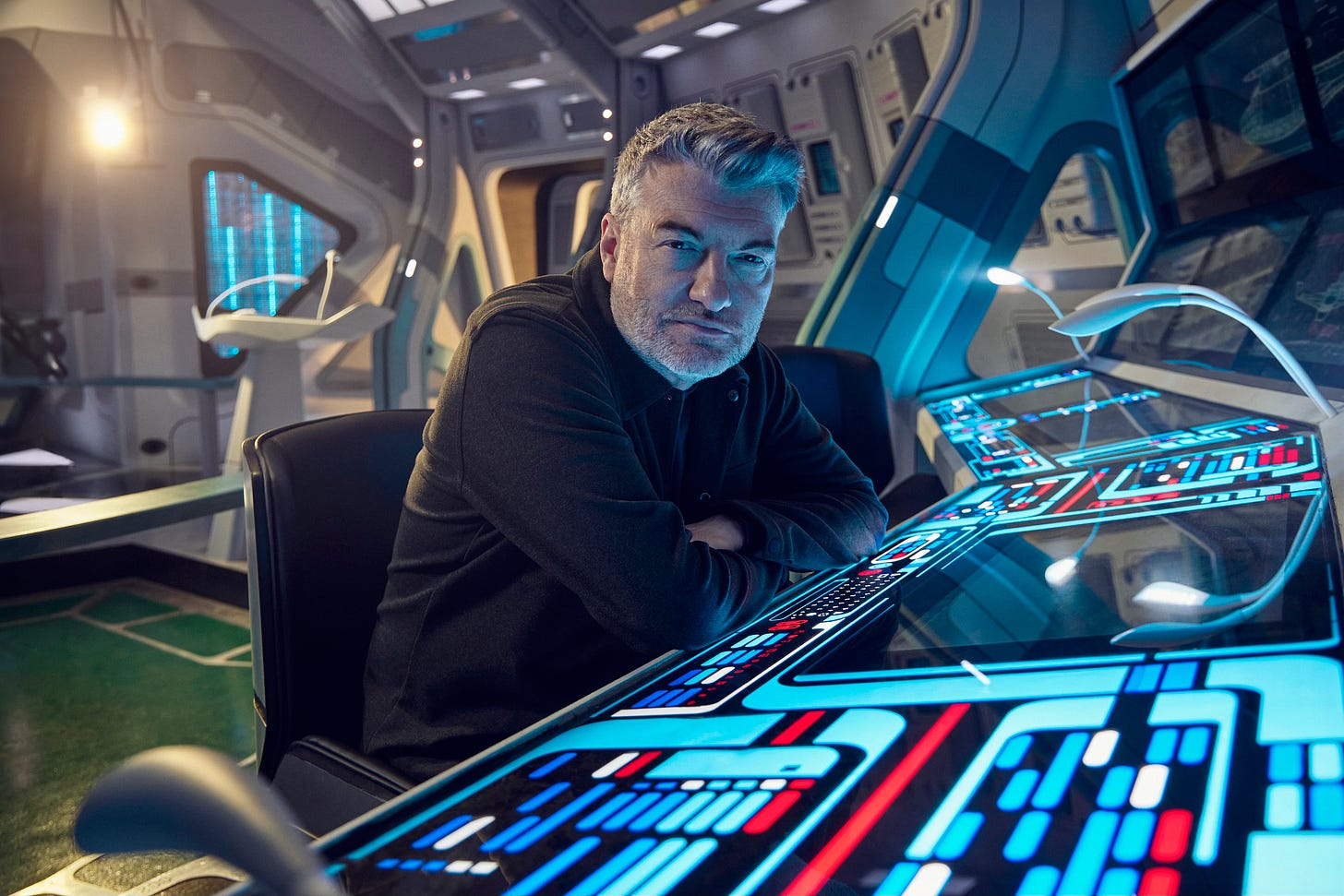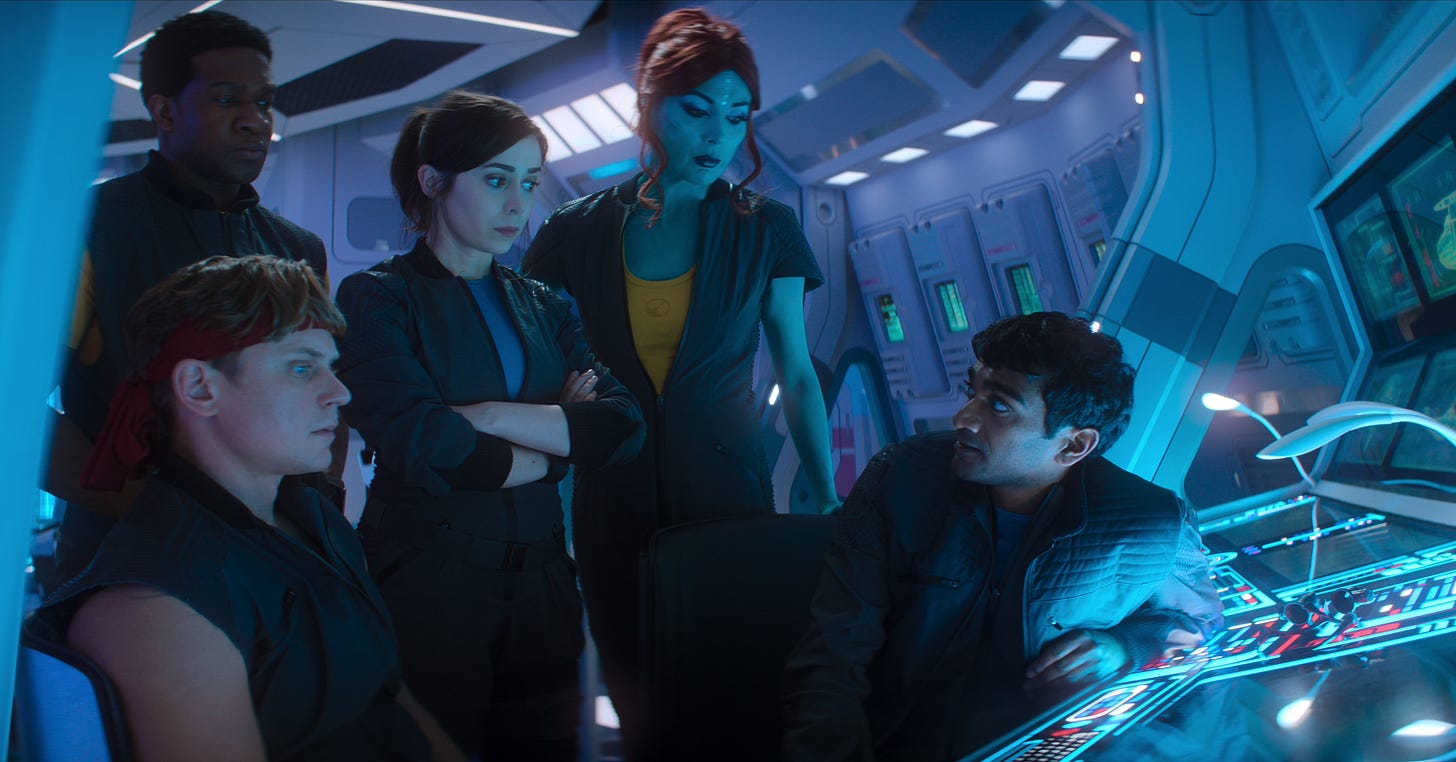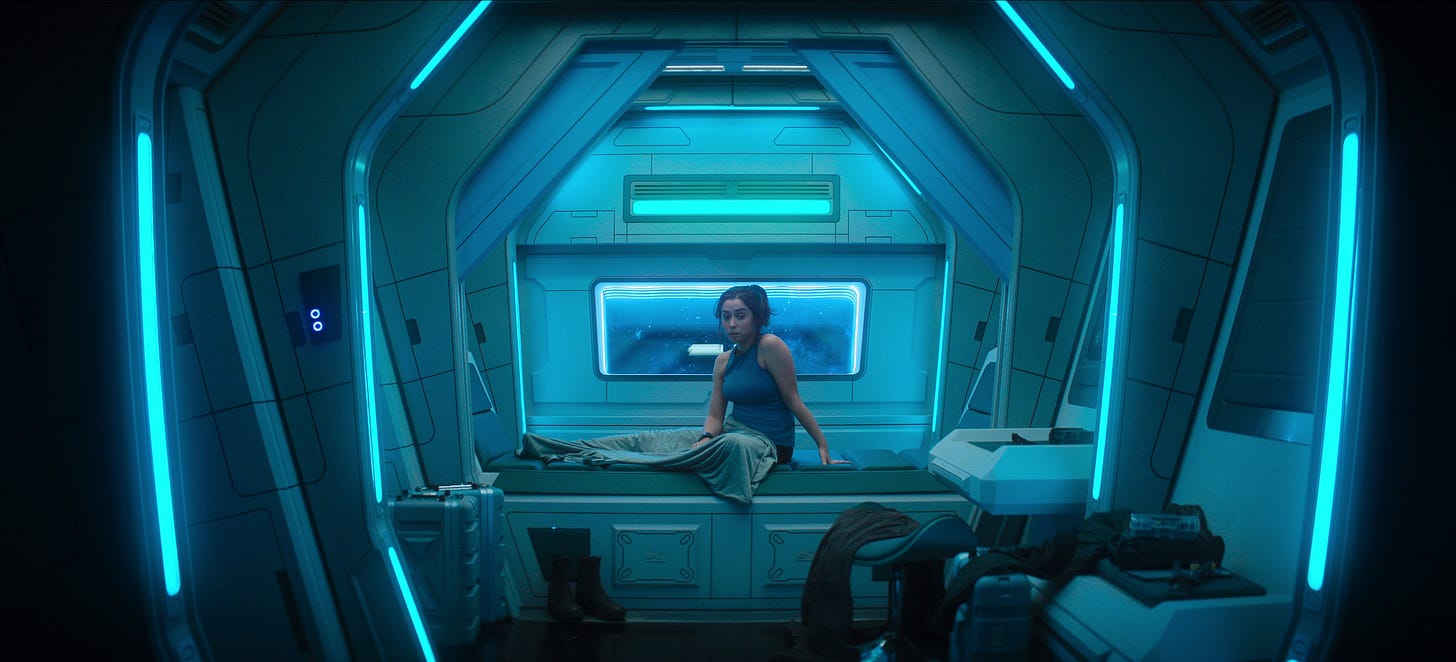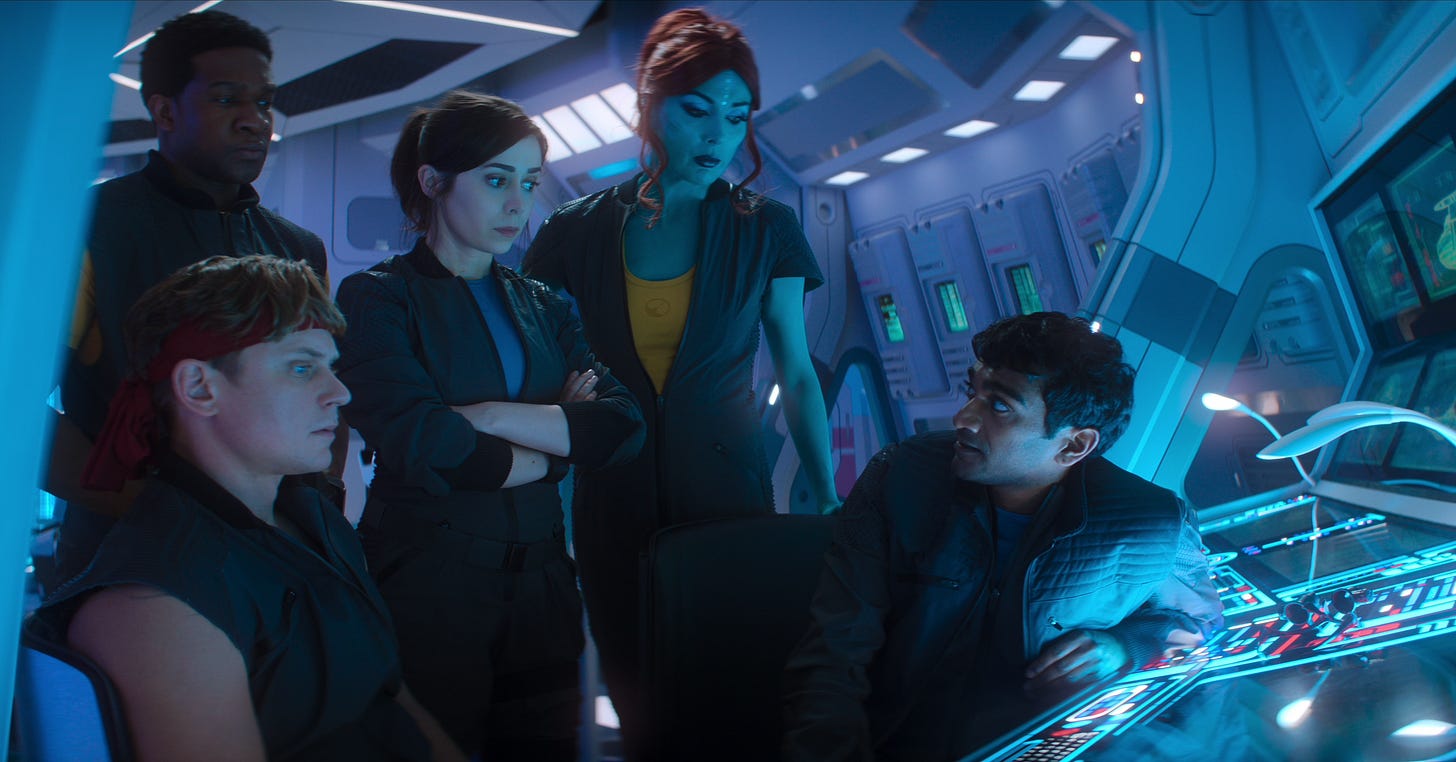Sound Designer Tom Jenkins On Creating An Emotional Journey In 'Black Mirror' Season Seven
The Award-Winning sound designer reveals his organic techniques for crafting the atmospheric world of this popular series...
Black Mirror recently completed its seventh season, showing no signs of slowing down. As our world continues to be stranger than fiction, Black Mirror holds the proverbial black mirror up to us, reflecting our contemporary tech-obsessed dystopia. The episodes reveal primal truths about humanity and take place in the near future, commenting on the world around us. Creator, showrunner, and writer Charlie Brooker has been a constant in this series since its inception. The series concluded with an episode entitled USS Callister: Into Infinity, a sequel to the popular USS Callister season four episode. Tom Jenkins (Tár, True Detective, Baby Reindeer) was brought on as the supervising sound editor; with a long and eclectic career in sound design, Jenkins brought unique energy to this world. Jenkins recently spoke with Immersive via Zoom.
[This conversation has been edited for clarity and length.]
How did you get into sound design?
I started off playing in bands, studying music, and DJing for a while. That led to a lot of fun but not anything sustainable as a career. Late nights in the studio didn't seem like something that I wanted to do for the rest of my life. I always had a passion for film and found my way to film school and then into the sound side of things. It unlocked a love for storytelling using sound as the medium.
Now, let's fast-forward to your work on Black Mirror, which is in its seventh season. Talk a little bit about your relationship with the show.
I think most people in sound design have watched Black Mirror; it's a really unique show in that respect. So, it was always on my radar and something that I'd always wanted to get involved in. I was fortunate. I did Baby Reindeer a year and a half ago, and when that finished the mixer I worked on with that, James Ridgeway gave me a call and asked if I'd be interested in doing Black Mirror, which I definitely was.
I've been familiar with Charlie Brooker for years. I remember when he used to write for The Guardian, he has a way with words. What was it like working with him as a showrunner?
Black Mirror is Charlie Brooker. He writes most of the episodes solo, sometimes with writing partners, and he is the creative force behind the show's identity. Black Mirror is unique in the sense that you usually have different directors. Charlie is a genius at letting directors and creative people have their voices heard, but he still has the final say on the show's creativity.
Does he delve into the sound area?
In a big way. Charlie loves sound. Having grown up when he's into video games & computer games. So, he has a keen ear and is always open to using sound as a storytelling medium, which is exciting for a sound designer. When showrunners and directors look at something, and it's not just ticking a box, or it's not just a technical aspect, they very much see it as it's the last stage of storytelling. It starts with the script and ends with us in the mix. Hopefully, we're doing things to connect people with the story and clarify the emotional journey that the characters are going on.
Talk briefly about the challenges of creating the sound design for the last episode, USS Callister: Into Infinity
USS Callister: Into Infinity was a lot of fun to work on. It was because it was a sequel to a successful episode. It's always slightly daunting but exciting when the scripts come through to get something that was a sequel to that great episode and a progression. It's a popcorn-action space opera. That involved ramping everything up on the sound design side of things. There was the need to create bespoke sounds for weapons, planets, space battles, and everything in between. It meant a lot of flexing creative muscles and relying on a great team around me to help bring these worlds to life.
Any specific sounds that are favorites that you've created?
The teleporters were a lot of fun. I took inspiration from Star Trek. I thought James McLachlan and his VFX team, Charlie and Toby Haynes - the brilliant director of the episode, created a visually stunning episode. James Ridgeway, our mixer and I had fun with this one. It was designing many sounds using outboard gear, sort of taking things out of the computer, doing it with modular synths, and just having a blast creating these textural things that played with music. We had Daniel Pemberton's excellent score, and for the whole episode, we were making sounds harmonized with what he was doing tonally.
How do you approach starting a project? Are there certain sound experiments you're like a door opening? I'd love to use this abstract sound I've been working on. Anything interesting like that that comes to mind?
Yeah, definitely. That's my process for anything. It starts at script stage, specifically Black Mirror. Scripts would be sent through and they'd arrive like three in the morning, which is about when I was feeding my newborn son. I would sit there with him, and then weird, sleep-deprived ideas would formulate. I came up with some fun stuff just getting inspiration from the words. It's your first emotional reaction to any content before seeing it. I think it's essential to work without visuals at the start, to base it solely on the emotion of what you're reading.
Emotion is fundamental, this is why its the first true heir to the Twilight Zone, the original Rod Sterling series…
Charlie is one of the few showrunners allowed to do his thing. They've put trust in that, and that trust is repaid because you have these incredible episodes that span different genres. I think it's sometimes misinterpreted as being based on technology. Whilst Black Mirror has that element, this is all filtered through humanity. There's real human connection and human emotions: love, joy, grief, and happiness. That's why it will start the test of time - it's not a show about just an evil computer. It's a show about a show about people and relationships. And that's why people connect with it.
Primal human emotion is the center of the show. Now that you're part of the Black Mirror universe, what's it like being on the other end of this season? As a professional achievement?
I'm really proud of it. I think everyone who was a part of the series is super proud of what we've achieved. You know, it's a lot of hard work, but every member of my sound team and every member of every team on the show put their all into it. We realized these are all special episodes. I'm really proud I worked on it.
Black Mirror season seven is streaming at Netflix.


